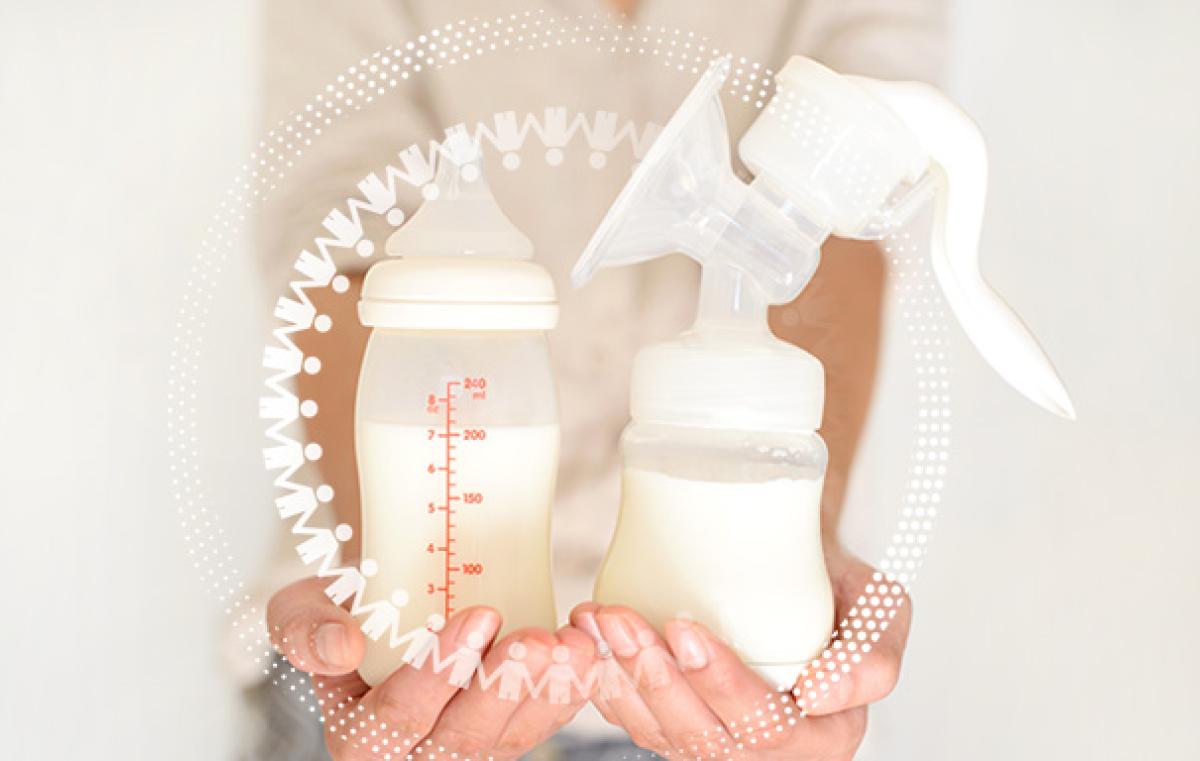Donating Breast Milk Helps with Grief After Stillbirth
A series of studies on milk donations of bereaved mothers finds that the process of pumping and donating has therapeutic value, creating meaning in post-traumatic loss and growth

A series of studies on milk donations of bereaved mothers finds that the process of pumping and donating has therapeutic value, creating meaning in post-traumatic loss and growth
Research conducted by Dr. Ayelet Oreg, of Bar-Ilan University’s Weisfeld School of Social Work, on human milk donations of bereaved North American and Australian mothers to non-profit milk banks, found that expressing milk and donating it helped the mothers to reconstruct the story of their pregnancy, birth and loss, and enabled them to find meaning in death – through saving the lives of other babies.
From the interviews she conducted with these women, it emerged that donating the milk contributed to the restoration of their feminine and maternal identity. “The mothers found it both therapeutic and comforting that they had the possibility of feeding other babies with the milk intended for their baby,” relates Dr. Oreg. “One of the interviewees said that this small act helped her feel that she was simply another mother doing what new mothers do – feeding a newborn. Certain mothers held the view that breast milk was the baby’s “legacy”, donated thanks to his generosity, as if their baby “dictated” the saving of other babies’ lives.”
“Pumping – a repeated and necessary action to continue milk production – also has a ritualistic dimension,” explains Dr. Oreg. “Grieving mothers described that pumping for them was dedicated to producing something vital, alongside moments of reflecting, imagining, and thinking about the deceased baby. The pumping ritual not only contributed to emotional empowerment and overcoming the feeling of failure and helplessness, but it also benefitted their physical health, since pumping milk required them to maintain a balanced diet, avoid alcohol and rest. And so, in a sort of closed circle, pumping which began as a physical action to reduce engorgement and pain, gradually led to emotional as well as physical healing.”
Dr. Oreg’s new study conducted together with Dr. Shachar Timor-Shelvin, also of BIU, and Dr. Alison Stern Perez, of Ben-Gurion University, which was published in the journal, Death Studies, examined the unique contribution of a bereaved mother – Dr. Alison Stern Perez to a family that adopted a baby – the son of Dr. Shachar Timor-Shelvin. The uniqueness of this research is that it deals with an unusual donation – this is the first study on human milk donations in Israel, and a direct donation within the community between families, and not via a milk bank, where donations are anonymous.
“For years the practice was to dry up the breast milk of mothers who had experienced stillbirth due to the unwillingness of the Israeli medical establishment to explore other options with the grieving mothers,” says Dr. Oreg. “In recent years, there has been growing public awareness of the situation of women who experienced pregnancy loss and stillbirth. Along with this, there has also been increased understanding that this unique loss can be dealt with in therapeutic ways that were not acceptable in the past, such as by donating breast milk that the body produced for the baby that is no longer there.”
Dr. Oreg relates that she first began exploring this issue after going through a stillbirth herself 14 years ago. “In those years, there was less awareness of the mourning process. The fetus was buried in a collective grave and that is what caused me to think about this difficult and important issue.” Dr. Oreg, a researcher of social, cultural, and political aspects of organ donations and the donation of bodily fluids, focuses her latest research on altruism of mothers and coping with loss and trauma through philanthropic giving. “Both my story, and the story of the nine-month-old baby of my colleague Dr. Timor-Shelvin who received a bereaved mother’s milk donation from Dr. Stern Perez, were the inspiration for our new research.”
In Israel, bereaved breast milk donors account for some 6 out of 300 annual donors to the new human milk bank. Pumping for milk donations lasts from days to weeks, and according to Dr. Oreg, the end of this period is also a sign of parting: parting from the physical bond with the dead baby, but from a place of strength. “The end of the pumping and donation period is usually marked at the banks by recording the name of the deceased baby, with a modest ceremony. The mothers who participated in the research noted the importance of such a ceremony as an act of visibility and legitimacy for the bereavement.”